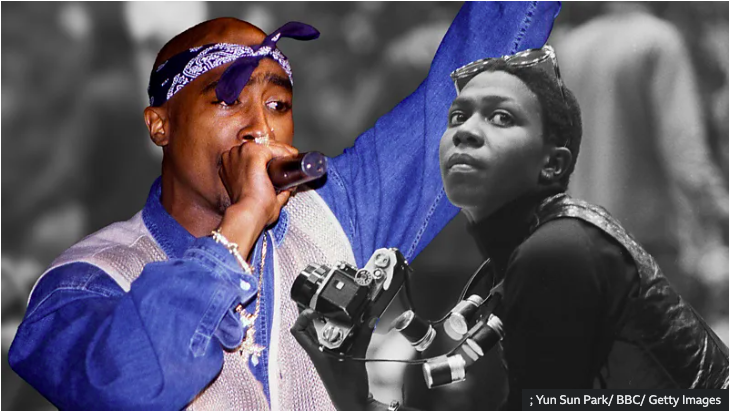"Dear Mama: Tupac's Timeless Tribute to Mothers and Sacrifice Changed Hip-Hop Forever"

Dear Mama: Tupac Shakur's Timeless Tribute to Motherhood
Few songs in hip-hop history carry the raw emotion and universal resonance of Tupac Shakur's "Dear Mama." Released in 1995 as part of his third studio album, Me Against the World, the song remains a poignant tribute to the sacrifices of single mothers, particularly his own mother, Afeni Shakur. Thirty years since the album's release, "Dear Mama" continues to evoke deep emotions, transcending generations and backgrounds.
A Mother’s Love Amidst Struggle
Afeni Shakur was no ordinary woman. A member of the Black Panther Party, she fought for civil rights and battled systemic oppression while raising her children in harsh conditions. However, like many who lived through the Crack Era, she also struggled with drug addiction. Despite these hardships, Tupac never wavered in his admiration for her.
"Even as a crack fiend, mama / You always was a black queen, mama," he rapped—words that redefined how rap music portrayed addiction. Rather than dehumanizing addicts as many artists did at the time, Tupac chose to recognize their struggles, particularly as victims of systemic oppression. His empathy for his mother’s battle made the song both painful and uplifting.
The Making of a Hip-Hop Classic
The original beat for "Dear Mama" was created by DJ Master Tee, later refined by producer Tony Pizarro. Built around a sample of Joe Sample’s "In All My Wildest Dreams," the melody exudes warmth and nostalgia, making it the perfect backdrop for Tupac’s heartfelt lyrics. The decision to keep Tupac’s vocal delivery raw and unlayered added to the song’s intimacy—listeners feel as though he is speaking directly to them.
Tupac’s storytelling ability is on full display, recounting memories of poverty, resilience, and unwavering maternal love. "I finally understand for a woman it ain't easy trying to raise a man," he acknowledges, showing maturity and reflection. The song resonates deeply because it captures both regret and gratitude—feelings many hold toward their mothers but struggle to express.
A Song That Transcends Time and Culture
Upon release, "Dear Mama" became an instant hit, reaching No. 1 on the Billboard Rap Songs chart. But its impact extended far beyond commercial success. In 2009, it was inducted into the U.S. Library of Congress’s National Recording Registry, cementing its status as one of the most culturally significant songs in American history.
Paul Arnold, the song’s engineer, explains its universal appeal: "It really doesn’t matter if you grew up in the ghetto or not, because ‘Dear Mama’ transcends all of that. You could be rich, poor, black, white, brown—whatever; you’ll find a way to relate to the song."
The song’s influence continues decades later. In 2023, FX released Dear Mama: The Saga of Afeni and Tupac Shakur, a docuseries exploring their complex relationship. Despite the turbulence in Tupac’s life—legal troubles, feuds, and ultimately his tragic murder—"Dear Mama" remains a testament to his softer, more introspective side.
A Lasting Legacy
Tupac once said he aimed to create music that would live beyond his years. "Dear Mama" achieved just that, serving as a sonic sanctuary for those grieving lost mothers or simply appreciating the ones still present. At a 1996 Mother’s Day charity event, Tupac dedicated the song to those without mothers, emphasizing its broader message of love and remembrance.
"And there’s no way I can pay you back / But my plan is to show you that I understand." These closing words encapsulate the song’s enduring power. Dear Mama isn’t just a track—it’s a ritual, a heartfelt thank-you, and a universal ode to maternal love that will continue touching hearts for generations to come.
- Art
- Causes
- Crafts
- Dance
- Drinks
- Film
- Fitness
- Food
- Games
- Gardening
- Health
- Home
- Literature
- Music
- Networking
- Other
- Party
- Religion
- Shopping
- Sports
- Theater
- Wellness


